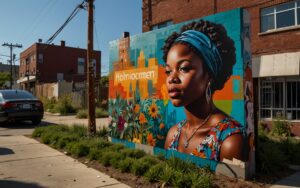Building wealth for Black families requires navigating numerous historical and systemic obstacles. However, there are innovative pathways opening up that go beyond the traditional methods. By exploring these unconventional strategies, Black families can better position themselves to build financial legacy and resilience.
Alternative Financial Investments
Rather than sticking to the tried and true, it might be worthwhile to explore new investment avenues. One compelling approach is investing in Ariel Alternatives’ Project Black. This initiative focuses on transforming middle-market companies into certified minority-owned business enterprises (MBEs). Such investments help create a new wave of Black and Latinx entrepreneurs, effectively narrowing the wealth gap in underrepresented communities. Additionally, sectors like healthcare, transportation, and food services, where Black communities have significant representation, can bolster entrepreneurship and job creation.
Empowering Through Education and Access
Education remains a cornerstone for financial empowerment. Organizations, including the NAACP, offer educational programs covering financial literacy, estate planning, and the value of fiduciary tools. Such workshops lay down the foundation for generational wealth. Enhancing digital access for low-income households is equally crucial. Access to online financial services, tools, and resources facilitates financial planning and management, broadening the scope of financial inclusion.
Collective Ownership and Community Wealth
Cooperative ownership models present an innovative pathway for wealth building. By allowing members to collectively own and control businesses, this structure fosters community-centric financial goals and equitable wealth distribution. Community Land Trusts (CLTs) stand out by entrusting land to community organizations, rather than private developers, ensuring long-term community benefit. This can preserve affordable housing and community resources, contributing significantly to communal wealth building.
Real estate remains a critical avenue for wealth generation. Programs like the Washington D.C. Home Ownership Assistance Program offer crucial gap financing and interest-free loans, aiding individuals in navigating the real estate market. These initiatives empower Black Americans to build generational wealth. Additionally, community development initiatives boost homeownership rates while safeguarding against practices like predatory lending.
Entrepreneurial Ventures in Focused Sectors
Supporting Black-owned businesses is vital for economic resiliency within the community. Initiatives like Ariel Alternatives’ projects and Southern Communities Initiative (SCI) emphasize creating opportunities for Black entrepreneurs through supplier diversity programs, enabling them to become key vendors to major companies. Particularly, industries like healthcare and social assistance, where Black individuals have a strong presence, offer fertile ground for thriving enterprises.
Harnessing Technology for Financial Inclusion
Technology plays a transformative role in financial services accessibility. The advent of digital solutions, such as mobile banking apps and online financial planning tools, democratizes financial services, making them more reachable and affordable for Black communities. Leveraging fintech solutions reduces traditional barriers, facilitating easier access to transactional and planning resources.
In conclusion, diversifying investments, increasing financial literacy, embracing collective ownership, capitalizing on real estate opportunities, and fostering entrepreneurship are pivotal strategies for building Black wealth. Leveraging technology and non-traditional methods, Black families can pave new paths toward economic empowerment and security.
#WealthBuilding #BlackFamilyEconomics #FinancialInclusion #CommunityWealth #InnovationInFinance


